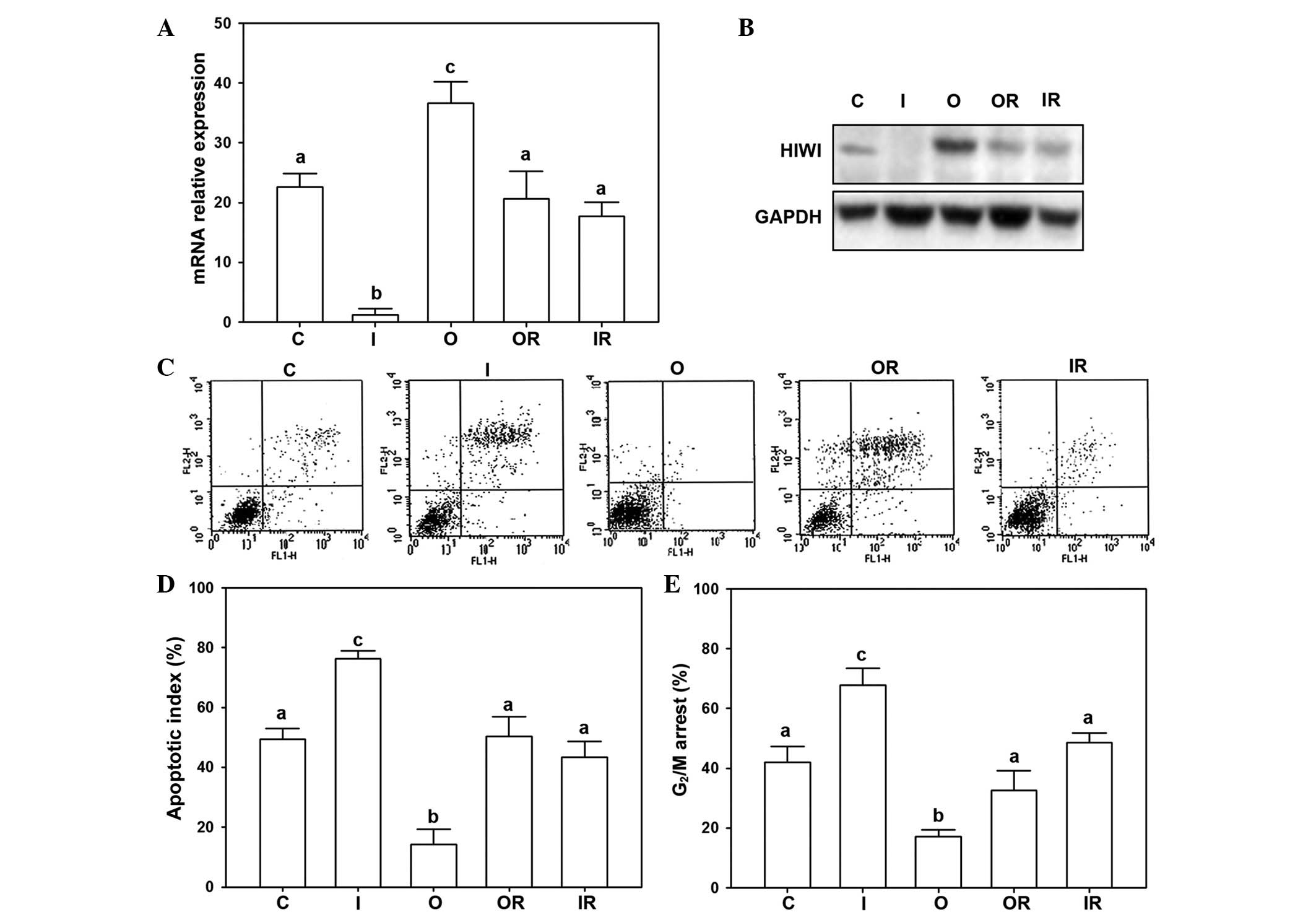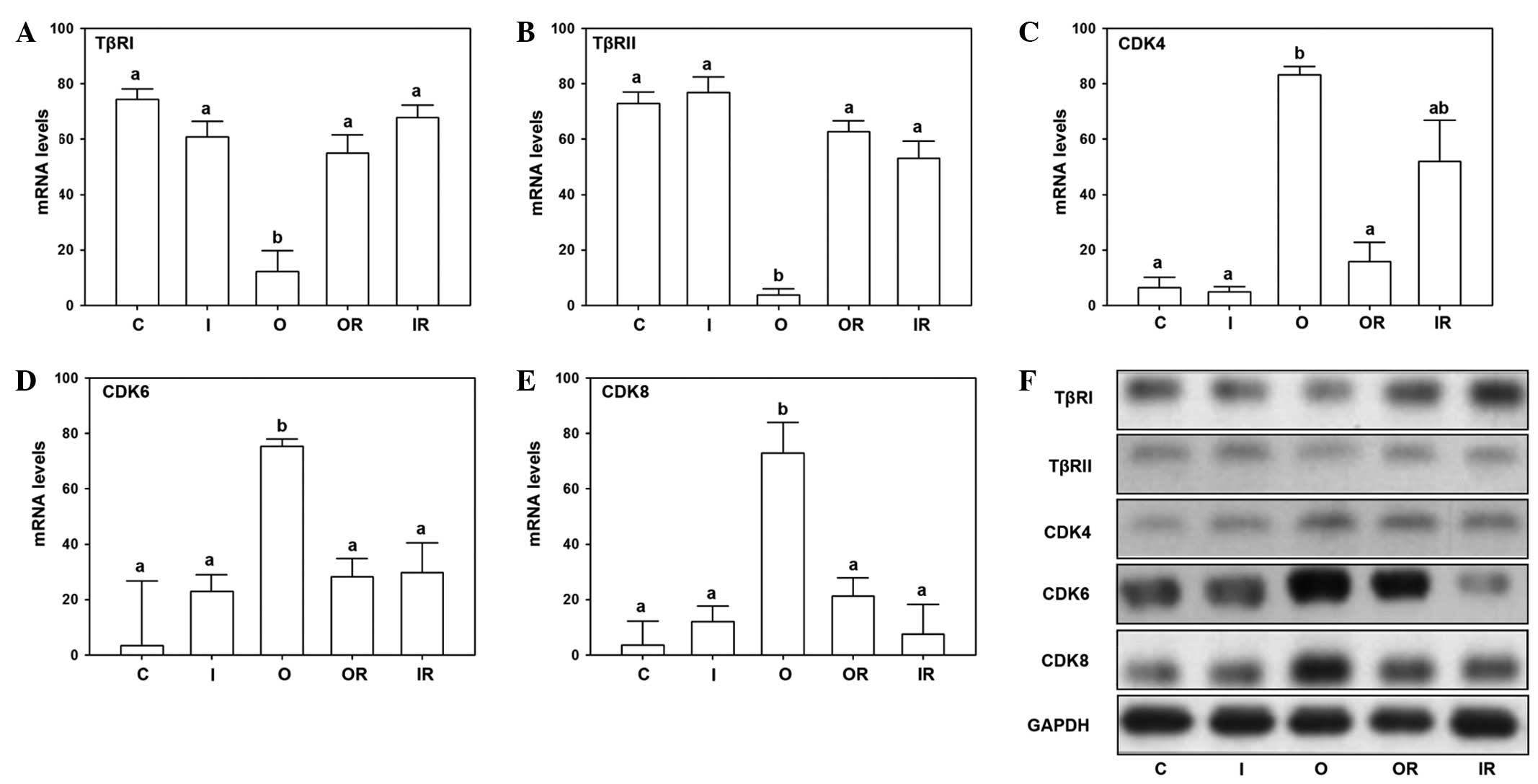|
1
|
Ferlay J, Soerjomataram I, Dikshit R, Eser
S, Mathers C, Rebelo M, Parkin DM, Forman D and Bray F: Cancer
incidence and mortality worldwide: Sources, methods and major
patterns in GLOBOCAN 2012. Int J Cancer. 136:E359–E386. 2015.
View Article : Google Scholar
|
|
2
|
Montagna E, Cancello G, Dellapasqua S,
Munzone E and Colleoni M: Metronomic therapy and breast cancer: A
systematic review. Cancer Treat Rev. 40:942–950. 2014. View Article : Google Scholar : PubMed/NCBI
|
|
3
|
Snee M: Follow-up of women treated for
breast cancer. Clin Oncol (R Coll Radiol). 8:85–89. 1996.
View Article : Google Scholar
|
|
4
|
Nowsheen S, Aziz K, Tran PT, Gorgoulis VG,
Yang ES and Georgakilas AG: Epigenetic inactivation of DNA repair
in breast cancer. Cancer Lett. 342:213–222. 2014. View Article : Google Scholar
|
|
5
|
Fucito A, Lucchetti C, Giordano A and
Romano G: Genetic and epigenetic alterations in breast cancer: What
are the perspectives for clinical practice? Int J Biochem Cell
Biol. 40:565–575. 2008. View Article : Google Scholar
|
|
6
|
Sandoval J and Esteller M: Cancer
epigenomics: Beyond genomics. Curr Opin Genet Dev. 22:50–55. 2012.
View Article : Google Scholar : PubMed/NCBI
|
|
7
|
Chénais B: Transposable elements and human
cancer: A causal relationship? Biochim Biophys Acta. 1835:28–35.
2013.
|
|
8
|
Hansen KD, Timp W, Bravo HC, Sabunciyan S,
Langmead B, McDonald OG, Wen B, Wu H, Liu Y, Diep D, et al:
Increased methylation variation in epigenetic domains across cancer
types. Nat Genet. 43:768–775. 2011. View
Article : Google Scholar : PubMed/NCBI
|
|
9
|
Lopez-Serra P and Esteller M: DNA
methylation-associated silencing of tumor-suppressor microRNAs in
cancer. Oncogene. 31:1609–1622. 2012. View Article : Google Scholar :
|
|
10
|
Levin HL and Moran JV: Dynamic
interactions between trans-posable elements and their hosts. Nat
Rev Genet. 12:615–627. 2011. View
Article : Google Scholar : PubMed/NCBI
|
|
11
|
Girard A, Sachidanandam R, Hannon GJ and
Carmell MA: A germline specific class of small RNAs binds mammalian
Piwi proteins. Nature. 442:199–202. 2006.PubMed/NCBI
|
|
12
|
Grivna ST, Beyret E, Wang Z and Lin H: A
novel class of small RNAs in mouse spermatogenic cells. Genes Dev.
20:1709–1714. 2006. View Article : Google Scholar : PubMed/NCBI
|
|
13
|
Seto AG, Kingston RE and Lau NC: The
coming of age for Piwi proteins. Mol Cell. 26:603–609. 2007.
View Article : Google Scholar : PubMed/NCBI
|
|
14
|
Senti KA and Brennecke J: The piRNA
pathway: A fly's perspective on the guardian of the genome. Trend
Genet. 26:499–509. 2010. View Article : Google Scholar
|
|
15
|
Zhou Y, Zhong H, Liu S, Yu F, Hu J, Zhang
C, Tao M and Liu Y: Elevated expression of Piwi and piRNAs in
ovaries of triploid crucian carp. Mol Cell Endocrinol. 383:1–9.
2014. View Article : Google Scholar
|
|
16
|
Zhang D, Duarte-Guterman P, Langlois VS
and Trudeau VL: Temporal expression and steroidal regulation of
piRNA pathway genes (mael, piwi, vasa) during Silurana (Xenopus)
tropicalis embryogenesis and early larval development. Comp Biochem
Physiol C Toxicol Pharmacol. 152:202–206. 2010. View Article : Google Scholar : PubMed/NCBI
|
|
17
|
Xu M, You Y, Hunsicker P, Hori T, Small C,
Griswold MD and Hecht NB: Mice deficient for a small cluster of
Piwi-interacting RNAs implicate Piwi-interacting RNAs in transposon
control. Biol Reprod. 79:51–57. 2008. View Article : Google Scholar : PubMed/NCBI
|
|
18
|
Ye Y, Yin DT, Chen L, Zhou Q, Shen R, He
G, Yan Q, Tong Z, Issekutz AC, Shapiro CL, et al: Identification of
Piwil2-like (PL2L) proteins that promote tumorigenesis. PLoS One.
5:e134062010. View Article : Google Scholar : PubMed/NCBI
|
|
19
|
Nikpour P, Forouzandeh-Moghaddam M, Ziaee
SA, Dokun OY, Schulz WA and Mowla SJ: Absence of PIWIL2 (HILI)
expression in human bladder cancer cell lines and tissues. Cancer
Epidemiol. 33:271–275. 2009. View Article : Google Scholar : PubMed/NCBI
|
|
20
|
Liu JJ, Shen R, Chen L, Ye Y, He G, Hua K,
Jarjoura D, Nakano T, Ramesh GK, Shapiro CL, et al: Piwil2 is
expressed in various stages of breast cancers and has the potential
to be used as a novel biomarker. Int J Clin Exp Pathol. 3:328–337.
2010.
|
|
21
|
Taubert H, Greither T, Kaushal D, Würl P,
Bache M, Bartel F, Kehlen A, Lautenschläger C, Harris L, Kraemer K,
et al: Expression of the stem cell self-renewal gene Hiwi and risk
of tumour-related death in patients with soft-tissue sarcoma.
Oncogene. 26:1098–1100. 2007. View Article : Google Scholar
|
|
22
|
Li L, Yu C, Gao H and Li Y: Argonaute
proteins: Potential biomarkers for human colon cancer. BMC Cancer.
10:382010. View Article : Google Scholar : PubMed/NCBI
|
|
23
|
Livak KJ and Schmittgen TD: Analysis of
relative gene expression data using real-time quantitative PCR and
the 2(-Delta Delta C(T)) method. Methods. 25:402–408. 2001.
View Article : Google Scholar
|
|
24
|
Liu W, Jiang X and Zhang Z: Expression of
PSCA, PIWIL1, and TBX2 in endometrial adenocarcinoma. Oncol Res
Treat. 33:241–245. 2010.
|
|
25
|
Oh SJ, Kim SM, Kim YO and Chang HK:
Clinicopathologic implications of PIWIL2 expression in colorectal
cancer. Korean J Pathol. 46:318–323. 2012. View Article : Google Scholar : PubMed/NCBI
|
|
26
|
Samowitz WS: Genetic and epigenetic
changes in colon cancer. Exp Mol Pathol. 85:64–67. 2008. View Article : Google Scholar : PubMed/NCBI
|
|
27
|
Liang D, Fang Z, Dong M, Liang C, Xing C,
Zhao J and Yang Y: Effect of RNA interference-related HiWi gene
expression on the proliferation and apoptosis of lung cancer stem
cells. Oncol Lett. 4:146–150. 2012.PubMed/NCBI
|
|
28
|
O'Donnell KA and Boeke JD: Mighty Piwis
defend the germline against genome intruders. Cell. 129:37–44.
2007. View Article : Google Scholar
|
|
29
|
Siddiqi S and Matushansky I: Piwis and
piwi-interacting RNAs in the epigenetics of cancer. J Cell Biochem.
113:373–380. 2012. View Article : Google Scholar
|
|
30
|
Grochola LF, Greither T, Taubert H, Möller
P, Knippschild U, Udelnow A, Henne-Bruns D and Würl P: The stem
cell-associated Hiwi gene in human adenocarcinoma of the pancreas:
Expression and risk of tumour-related death. Br J Cancer.
99:1083–1088. 2008. View Article : Google Scholar : PubMed/NCBI
|
|
31
|
Liu X, Sun Y, Guo J, Ma H, Li J, Dong B,
Jin G, Zhang J, Wu J, Meng L, et al: Expression of hiwi gene in
human gastric cancer was associated with proliferation of cancer
cells. Int J Cancer. 118:1922–1929. 2006. View Article : Google Scholar
|
|
32
|
Zhang K, Lu Y, Yang P, Li C, Sun H, Tao D,
Liu Y, Zhang S and Ma Y: HILI inhibits TGF-β signaling by
interacting with Hsp90 and promoting TβR degradation. PLoS One.
7:e419732012. View Article : Google Scholar
|
|
33
|
Shah MA and Schwartz GK: Cyclin-dependent
kinases as targets for cancer therapy. Update Cancer Ther.
1:311–332. 2006. View Article : Google Scholar
|
|
34
|
Graña X and Reddy EP: Cell cycle control
in mammalian cells: Role of cyclins, cyclin dependent kinases
(CDKs), growth suppressor genes and cyclin-dependent kinase
inhibitors (CDKIs). Oncogene. 11:211–219. 1995.
|


















